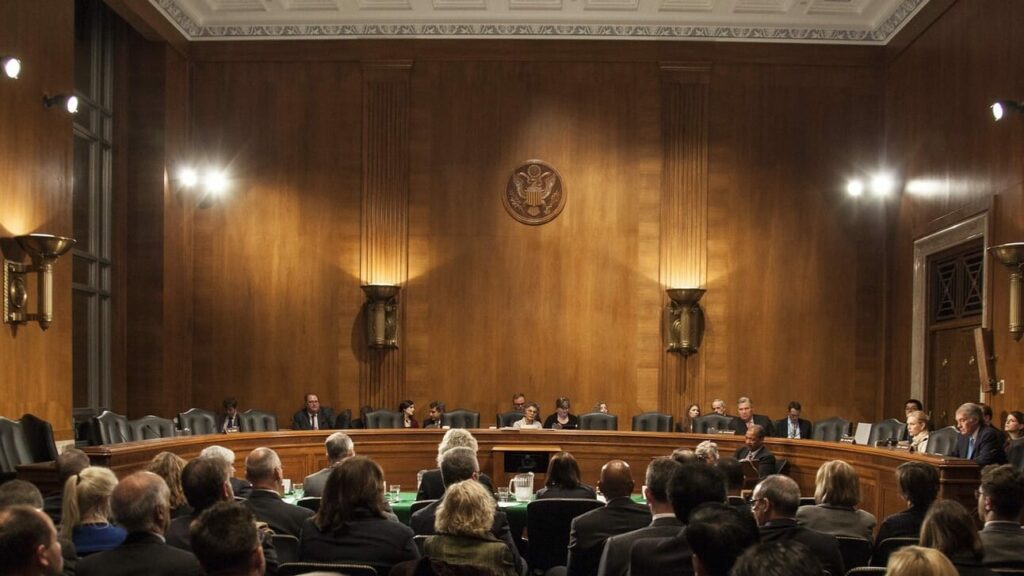Lots to catch up on today, so thanks for your patience.
And — scheduling note — my social media manager is graduating from high school on Friday, so Cost Curve is off on Friday. Probably Thursday, too. And Monday is Memorial Day, so it’ll be an extra-long long weekend.
There is going to be a Senate Finance Committee hearing tomorrow on “Ensuring Affordable & Accessible Medications: Examining Competition in the Prescription Drug Market.”
On the one hand, there will be no CEOs, so there should be relatively less attention and grandstanding by members. On the other hand, the witnesses have fairly well-established positions, so there may not be a lot to be learned, at least for those who have been paying attention.
The mix is clearly tilted toward pharma skeptics, but — with one exception, which I’ll get to in a sec — we’re dealing with people who are arguing their position from an evidence-first foundation.
There are a lot of reasons to think critically about research out of Harvard’s PORTAL group (yes, naturally, a PORTAL person is testifying), but at least they’re putting their reasoning out there in a way that should, in theory, invite good-faith debate and discussion.
So I don’t expect to agree with a lot of what’s going to be said, but I hope that the conversation makes everyone smarter about how we think about important questions.
I said “I hope,” not “I expect,” because they’ve invited Patients for Affordable Drugs’ David Mitchell to testify.
Mitchell is a believer in lower drug prices by any means necessary, and he’s good at his job. But he also has an overwhelmingly narrow view of who the villains are. He doesn’t spend a lot of time exploring the tradeoffs and misaligned incentives in the drug supply chain.
Instead, much of his work is dedicated to trying to discredit anyone whose views might differ from his as pro-pharma and therefore, by definition, suspect.
I wrote earlier this month about his group’s ridiculous new “Us vs. Pharma” campaign, which is infused with rhetoric that assumes that Americans are — or should be — opposed to pharma. (Indeed, the URL for the campaign is “fightpharma.org.”)
That’s hardly constructive.
Look, I get that there is a long history of advocacy based on building strawmen and hyperbolic populism. I’m just disappointed that in a moment where we need nuance and thoughtfulness, U.S. Senators are going to give a bullhorn to someone who seems to believe the opposite.
This is paywalled at Inside Health Policy, but the key idea comes through in the brief snippet available: a top FDA official is acknowledging that — yeah — the IRA is going to affect orphan drug development. This is not a particularly shocking idea, but it’s worth pointing out that the evidence here is so self-evident now that even administration officials are admitting it.
One of the most powerful arguments that hospitals roll out around the 340B debate is that 340B dollars are the only thing keeping entities from financial ruin. It’s not a particularly thoughtful argument, but it’s an awfully effective way to scare elected officials out of looking too hard at things. Anyway: it turns out that big nonprofit hospitals — which also happen to often be 340B providers — are doing just fine, thank you. I’m sure they’ll still want to hang on to those sweet, sweet 340B dollars, though. (Nice reporting from STAT.)
I have to admit to being a little conflicted about spending so much time on Bernie Sanders lately. In some ways, his success depends not on any actual legislative action but merely on his ability to grab and maintain the spotlight, and I’ve contributed to that in my own little way. STAT has a nice look at the limits of Bernie’s public pressure campaign around drug prices, suggesting that his effort “may have reached the limits” of what it can do.
I’m always interested in stories about people struggling to afford medicine because those looks often reveal truths that go beyond what the journalist is trying to convey. So I was eager to dive into this KFF piece about the impact of the prices of obesity drugs on lower-income Americans. It’s framed as an examination of the impact of price, but it turns out that issues with coverage in government programs and the pernicious effects of high-deductible health insurance also play a role.
There are two reasons to read this USA Today story about protests at Express Scripts’ HQ. This first is as a reminder that pharmacists are being hurt badly. The second is to note that USA Today looks like it wants to go deeper, throwing this tag at the bottom of the piece: “If you are a pharmacist, physician or patient/consumer who believe you have been harmed by the practices of a pharmacy benefits manager (PBM), reach out to USA TODAY senior investigative reporter Emily Le Coz at elecoz@usatoday.com.”
Thanks for reading this far. I’d be flattered if you shared all or part of Cost Curve. All I ask is for a mention or tag. Bonus points if you can direct someone to the subscription page.





